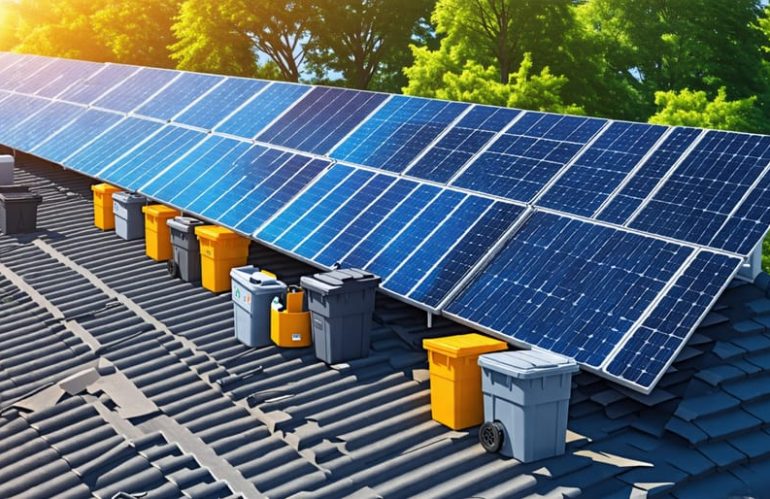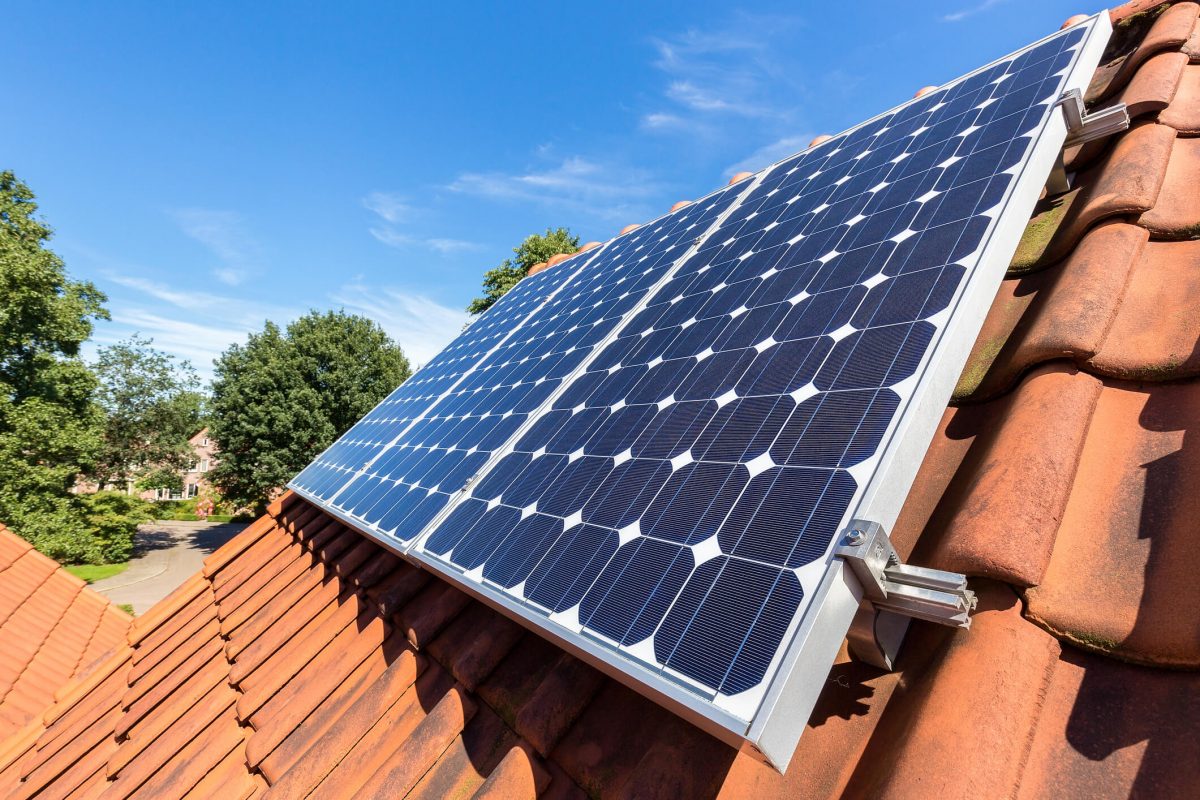Recycle old solar panels through certified programs to minimize environmental harm and recover valuable materials. Donate undamaged panels to schools or community projects, extending their lifecycle and supporting educational initiatives. Opt for manufacturers who offer take-back programs, ensuring responsible recycling and disposal. Educate yourself on local regulations and incentives for solar panel recycling, maximizing both environmental benefits and potential cost savings.
Understanding the Solar Panel Lifecycle
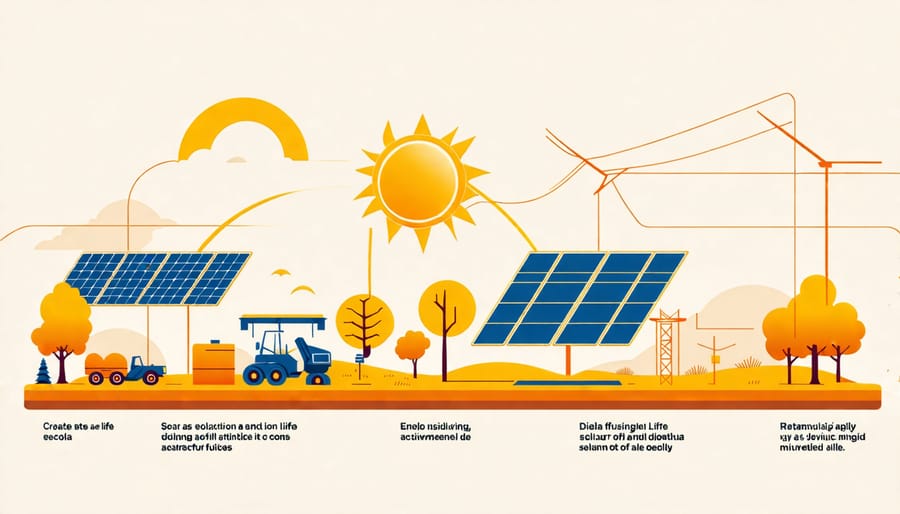
Production and Use
Solar panels are created using materials like silicon, glass, and various metals, carefully assembled to harness the sun’s energy efficiently. Once manufactured, they are installed on rooftops, turning sunlight into electricity for your home. This clean energy source helps reduce reliance on fossil fuels, significantly cutting down energy bills and carbon footprints. Over their lifespan, solar panels actively contribute to sustainable living by providing a renewable energy solution that requires little maintenance. When considering Installing Solar Panels, it’s essential to understand that while the initial production involves energy use, the panels themselves more than compensate for this through years of clean energy generation. Emphasizing their long-term benefits supports eco-friendly practices and can offer homeowners substantial savings, making solar panels not only a wise environmental choice but also a sound financial investment. With proper care, these systems can serve effectively for decades, underscoring the importance of integrating renewable solutions into everyday life.
End-of-Life Concerns
As solar panels reach the end of their lifespan, typically after 25-30 years of service, understanding the disposal process becomes crucial. The good news is that solar panels, heralded as the “Next Big Thing” in renewable energy, are made of mostly recyclable materials like glass, aluminum, and silicon. However, challenges remain in efficiently recycling them at scale due to a lack of dedicated infrastructure and awareness among consumers. It’s vital for homeowners interested in sustainable living to recognize the importance of proper disposal, which not only brings environmental benefits but can also potentially reduce costs associated with waste management. While the industry is evolving with innovative ways to recycle solar panels, such as developing more efficient recycling techniques and establishing new facilities, consumers can play their part by researching local recycling options and supporting companies investing in greener technologies. This transition towards responsible disposal will enhance the full lifecycle sustainability of solar panels, encouraging a greener future for everyone.
Current Practices in Solar Panel Disposal
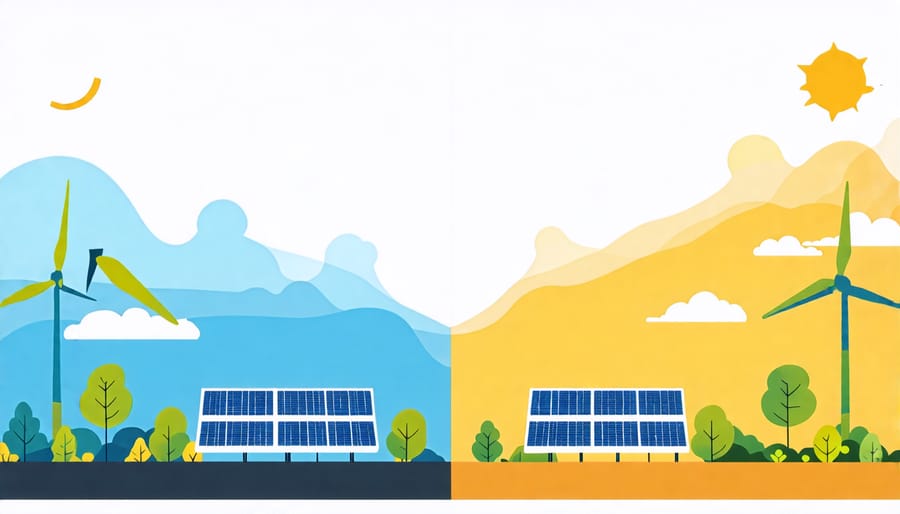
Landfilling
Landfilling is one of the common methods for disposing of solar panels at the end of their lifecycle. Although many see this as a straightforward option, it carries several environmental concerns. Solar panels contain valuable yet potentially harmful materials like silicon, silver, and lead. When these panels are discarded in landfills, there’s a risk that these materials can leach into the soil and nearby water sources, potentially causing pollution. This can undermine the environmental benefits that solar panels bring during their active years.
However, it’s essential to note that alternatives such as recycling are becoming more accessible and offer a way to reclaim valuable materials while minimizing ecological impact. By choosing recycling over landfilling, homeowners can contribute positively to the environment and potentially benefit financially from reused components. Embracing sustainable practices not only helps preserve the planet for future generations but also aligns with efforts to enhance a home’s overall eco-friendliness. This shift makes sustainable living not just a choice, but a smart, responsible one.
Recycling Options
Recycling solar panels is an essential part of their lifecycle, especially as more homeowners embrace renewable energy. Fortunately, the technology and processes for solar panel recycling are improving steadily. Today, around 95% of the materials in solar panels, including glass, aluminum, and silicon, can be recovered and repurposed. Specialized facilities use advanced techniques to dismantle the panels, separating valuable materials that can be reused in new panels or other products.
Participating in solar panel recycling has significant benefits not only for the environment but also for homeowners’ wallets. By diverting panels from landfills, recycling helps conserve resources and reduces the need for raw material extraction, which can be costly and environmentally damaging. Additionally, some programs offer financial incentives or rebates for recycling solar panels, further enhancing the economic appeal of disposing of them responsibly.
Though the industry faces challenges, such as standardizing processes and increasing recycling rates, ongoing innovation promises a more sustainable and cost-effective future. Embracing these recycling options not only aligns with sustainable living goals but also reinforces the positive environmental impact and financial savings of using solar power.
Regulatory Challenges
Navigating the maze of regulations surrounding solar panel disposal can be a daunting task for homeowners. Currently, solar panel disposal regulations vary widely, with some regions having stringent rules while others lack clear guidelines altogether. This inconsistency can create confusion, making it challenging to dispose of panels in an environmentally friendly way. Additionally, limited infrastructure for recycling and limited awareness of existing solutions further complicate the disposal process. Despite these obstacles, progress is on the horizon as more policymakers recognize the need for standardized and accessible regulations. These changes are paving the way for easier and more sustainable disposal options, ultimately benefiting both homeowners and the planet.
Benefits of Recycling Solar Panels
Environmental Benefits
Recycling solar panels offers significant environmental benefits by reducing waste and conserving natural resources. As panels reach the end of their lifecycle, recycling ensures that valuable materials like silicon, glass, and metals are recovered and reused rather than being sent to landfills. This process not only minimizes environmental impact but also decreases the need for raw material extraction, conserving precious resources and reducing carbon emissions associated with manufacturing new panels. By participating in recycling, homeowners contribute to a circular economy, where products are designed to be reused and waste is minimized. This not only aligns with sustainable living goals but can also lead to cost savings in the energy sector by creating a steady supply of materials for new panels. Debunking the myth that solar panels are a waste problem, recycling transforms them into an asset, ensuring that renewable energy remains a cornerstone of a greener future.
Financial Benefits
Recycling solar panels isn’t just an environmentally friendly choice; it also offers tangible financial benefits. First off, engaging in recycling efforts can significantly cut down future costs for homeowners. As solar technology continues to advance, older panels may be replaced with more efficient models, and recycling ensures that valuable materials like silicon, silver, and copper can be recovered and reused. This resource recovery reduces the need for new raw materials, ultimately lowering production costs and the price of solar panels over time.
Additionally, effective recycling can help homeowners recoup some of their initial investment in solar technology. Companies involved in panel recycling might offer incentives or pay for old panels, helping alleviate the cost of upgrading to new systems. For those concerned about the financial viability of investing in solar energy, rest assured that solar panels are indeed a Bright Investment. Through recycling, homeowners not only contribute to a sustainable cycle but also enhance their financial savings, making renewable energy an even more appealing prospect.
How Homeowners Can Make a Difference
Research and Choose Eco-Friendly Installers
Choosing a solar installer who offers eco-friendly solutions goes a long way in ensuring the responsible disposal of solar panels at the end of their lifespan. As you venture into solar energy, powered by the sun, it’s essential to consider more than just the initial installation. While solar panels are an excellent investment for reducing energy bills and promoting renewable energy, they eventually reach the end of their useful life. By selecting an installer that also addresses disposal, you’re taking a proactive step towards environmental sustainability.
Many forward-thinking installers are now incorporating end-of-life plans into their services, providing recycling or repurposing options for solar panels. This means that when your panels have served their purpose, they won’t end up in landfills. Instead, valuable components can be extracted and reused, minimizing waste and reducing environmental impact. This approach not only aligns with eco-friendly practices but also enhances the long-term financial benefits of your initial investment.
Before committing to a solar installer, inquire about their policies on panel disposal. Companies that prioritize sustainable practices often have partnerships with recycling facilities or initiatives that handle old solar panels responsibly. By choosing such installers, you’re not just making an environmentally-friendly choice today, but also ensuring future sustainability. This holistic approach to solar energy can enhance the benefits of your decision to Power Your Home with the sun, creating a truly green system.
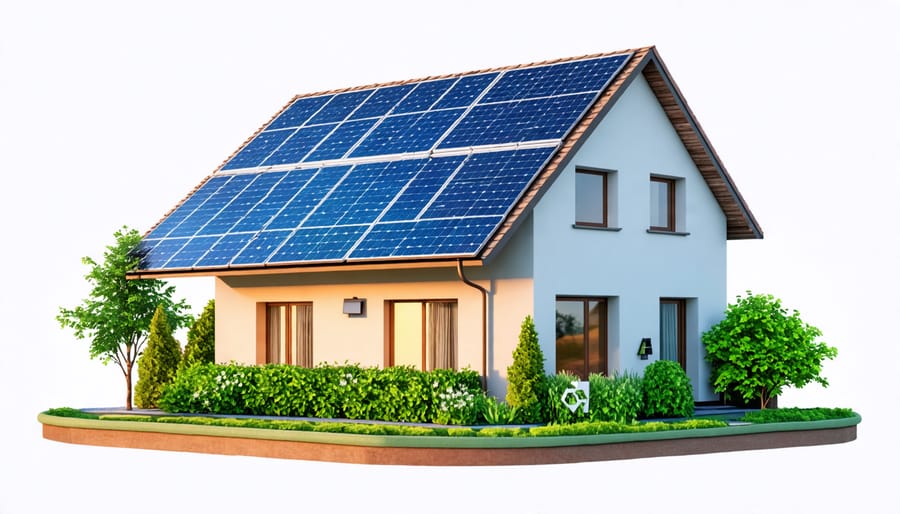
Participate in Recycling Programs
Getting involved in solar panel recycling programs is a proactive step towards a more sustainable future. With the growing number of solar panels reaching the end of their life cycle, recycling is essential to prevent waste and recover valuable materials like silicon and metals. Joining a local or national recycling program not only reduces landfill waste but also contributes to the circular economy. These programs are increasingly accessible, often providing convenient drop-off points or pick-up services for old or damaged panels.
Participating in these initiatives can be financially beneficial in the long run. By recycling your solar panels, you may be able to earn credits or discounts on future purchases, making it easier on your wallet. Furthermore, many programs are keen to dispel common myths—for example, the notion that solar panel disposal is overly complicated or costly. In reality, well-organized recycling programs simplify the process, offering transparent and reasonable costs.
Moreover, by choosing to recycle, you contribute positively to environmental preservation and promote the responsible consumption of resources. Engaging in recycling not only supports the reduction of your carbon footprint but also encourages the solar industry to continue innovating in sustainable practices. Consider researching local options and joining these efforts, knowing you’re making a significant impact on both a personal and community level.
Conclusion
As we continue our journey towards a more sustainable future, addressing the disposal of solar panels becomes increasingly vital. By understanding and mitigating the impact of solar panel waste, we not only contribute to environmental protection but also enhance the overall benefits of renewable energy adoption. Homeowners play a critical role in this transition by embracing responsible disposal practices and advocating for recycling initiatives within their communities. These efforts can significantly reduce potential landfill waste, thereby preserving natural resources and decreasing the carbon footprint of renewable technologies. Moreover, tackling solar panel disposal challenges helps to debunk common myths about renewable energy being less beneficial in the long run. Engaging in this sustainable loop not only benefits the planet but also provides long-term financial advantages for homeowners, such as reduced energy bills and potential incentives for sustainable practices. By staying informed and proactive, individuals can ensure that their commitment to solar energy remains a truly environmentally friendly choice. As we embrace these solutions, let’s remember that every step towards proper disposal and recycling supports a cleaner, more sustainable future for everyone.

